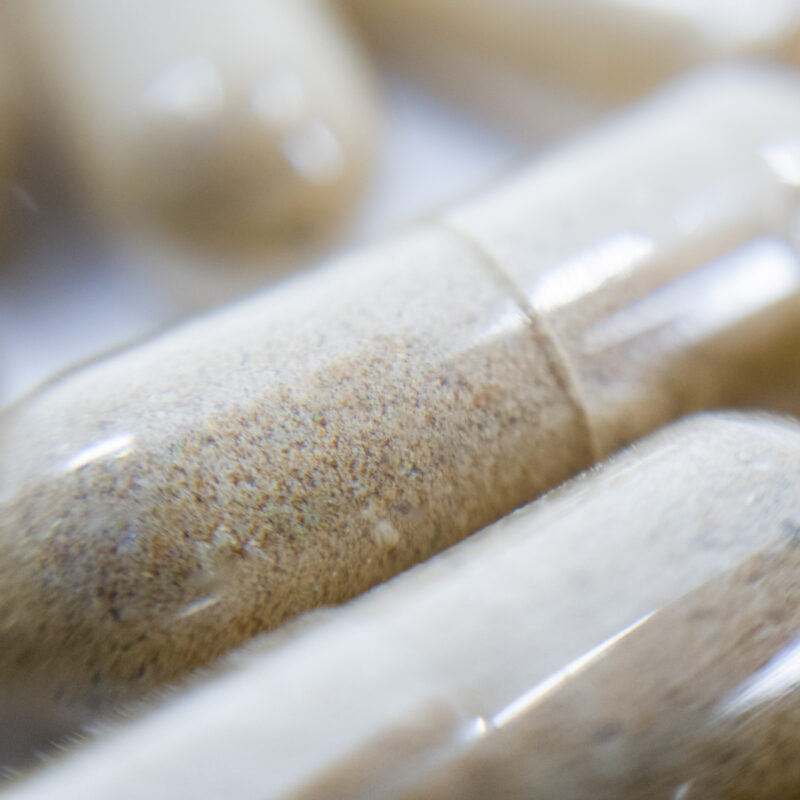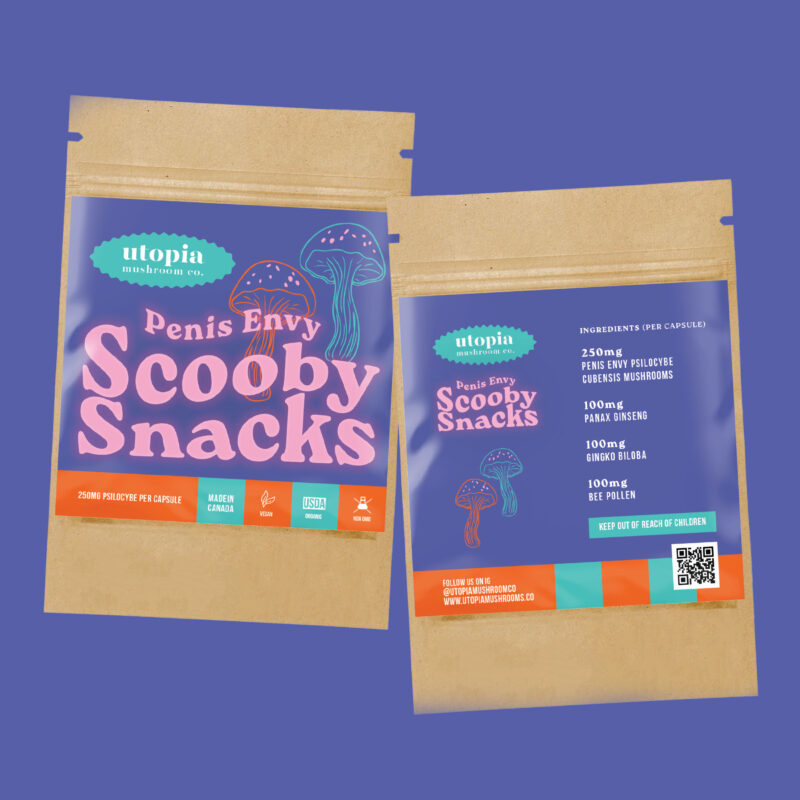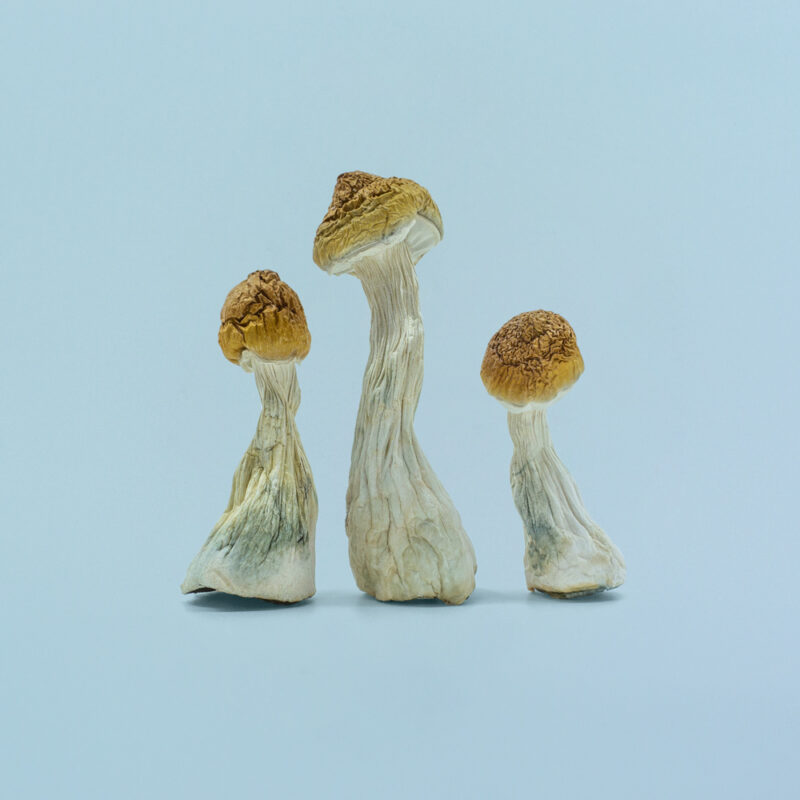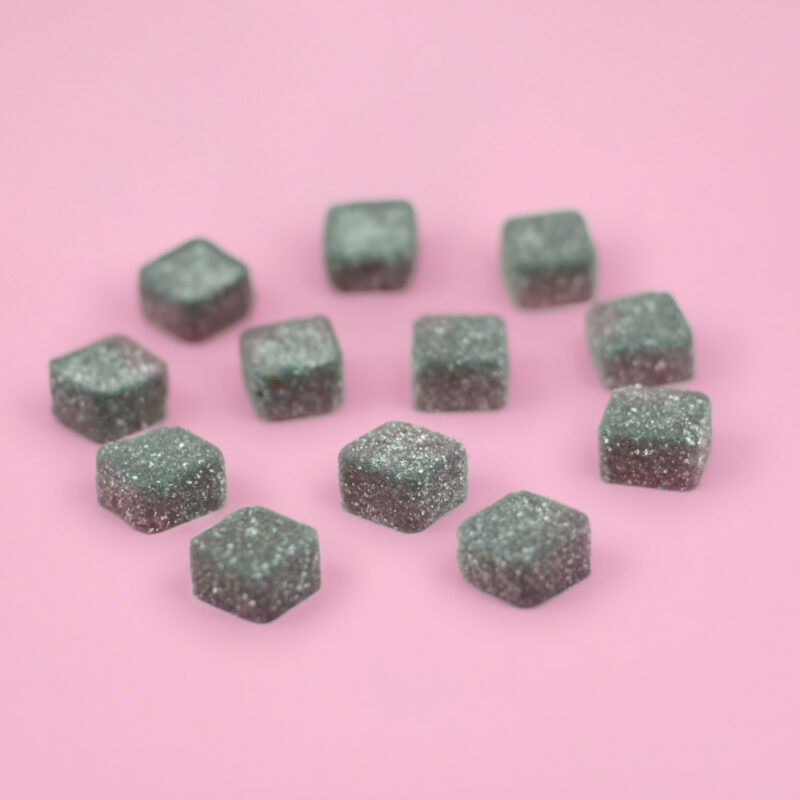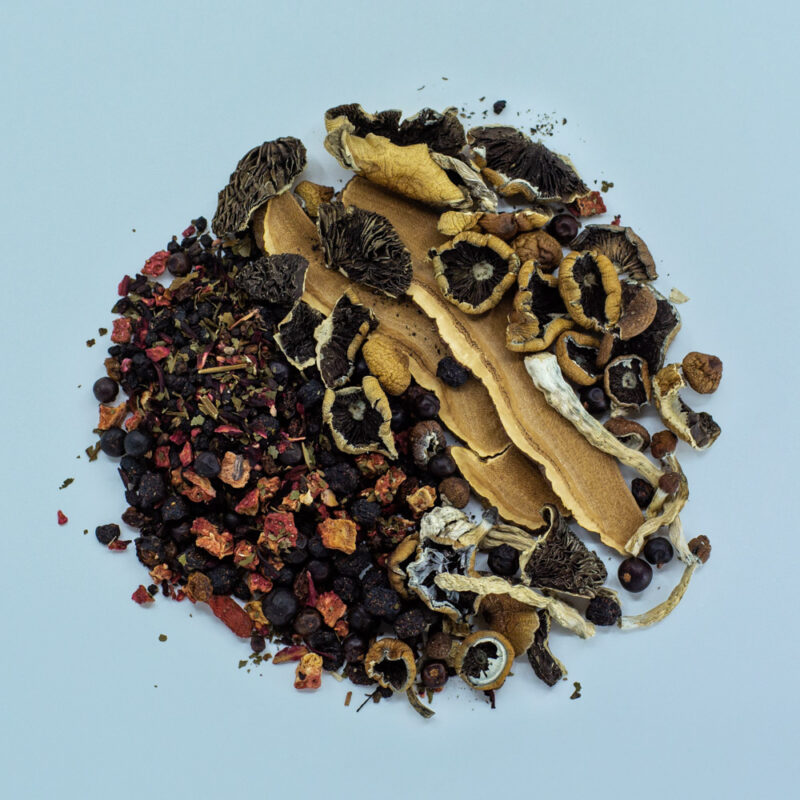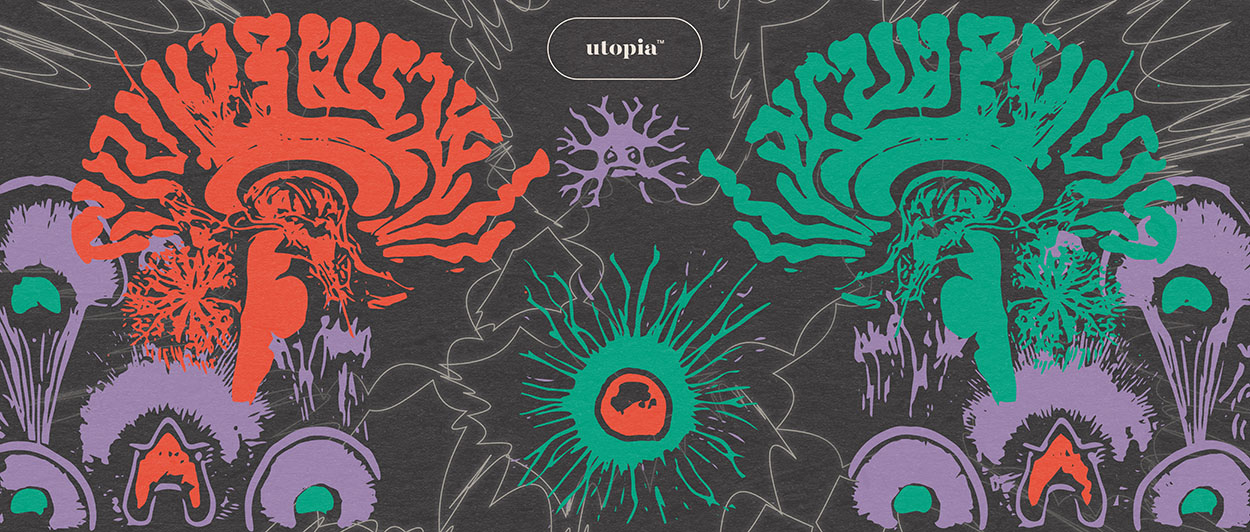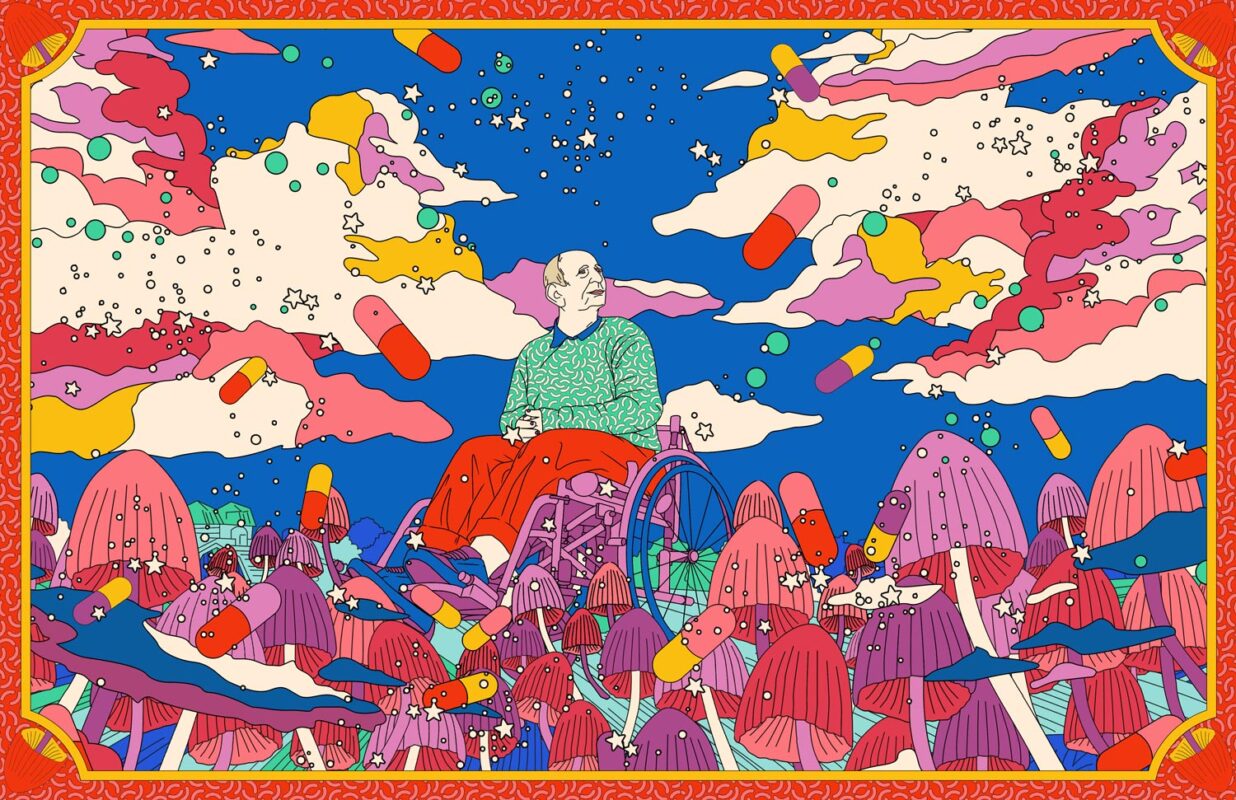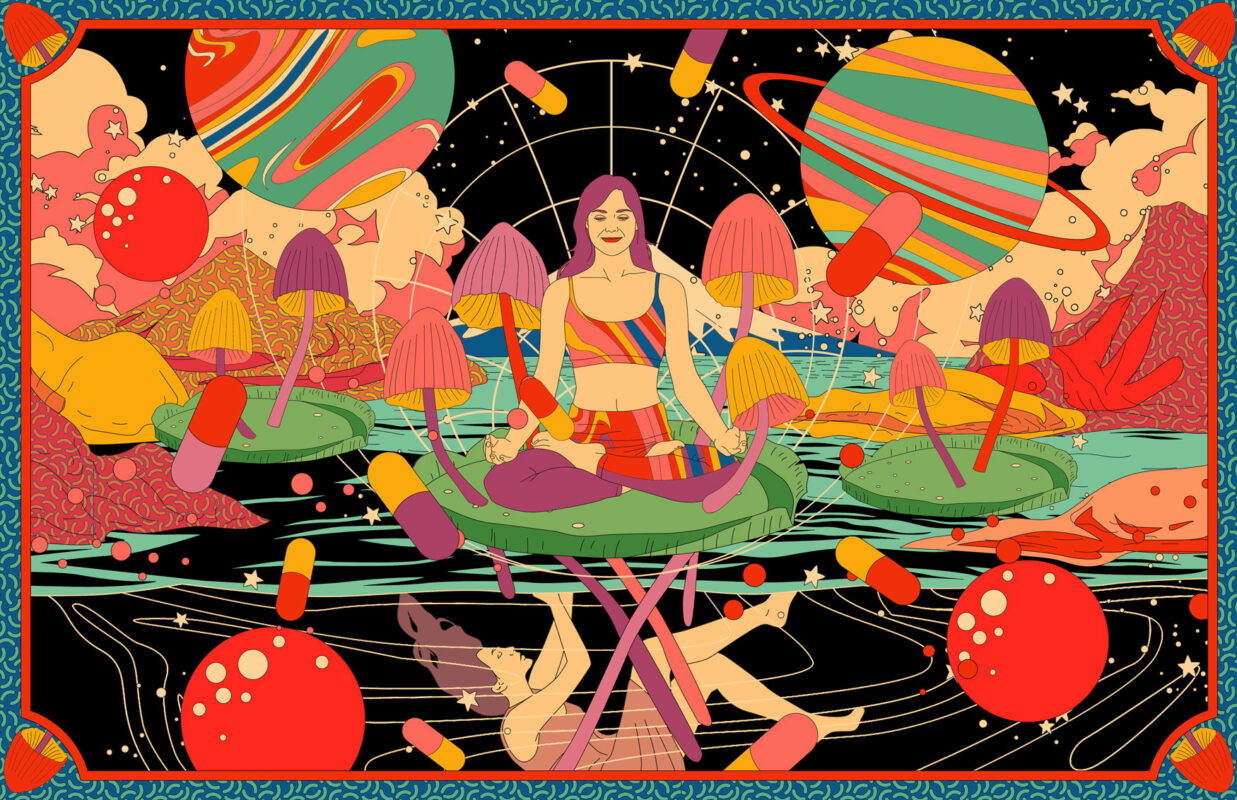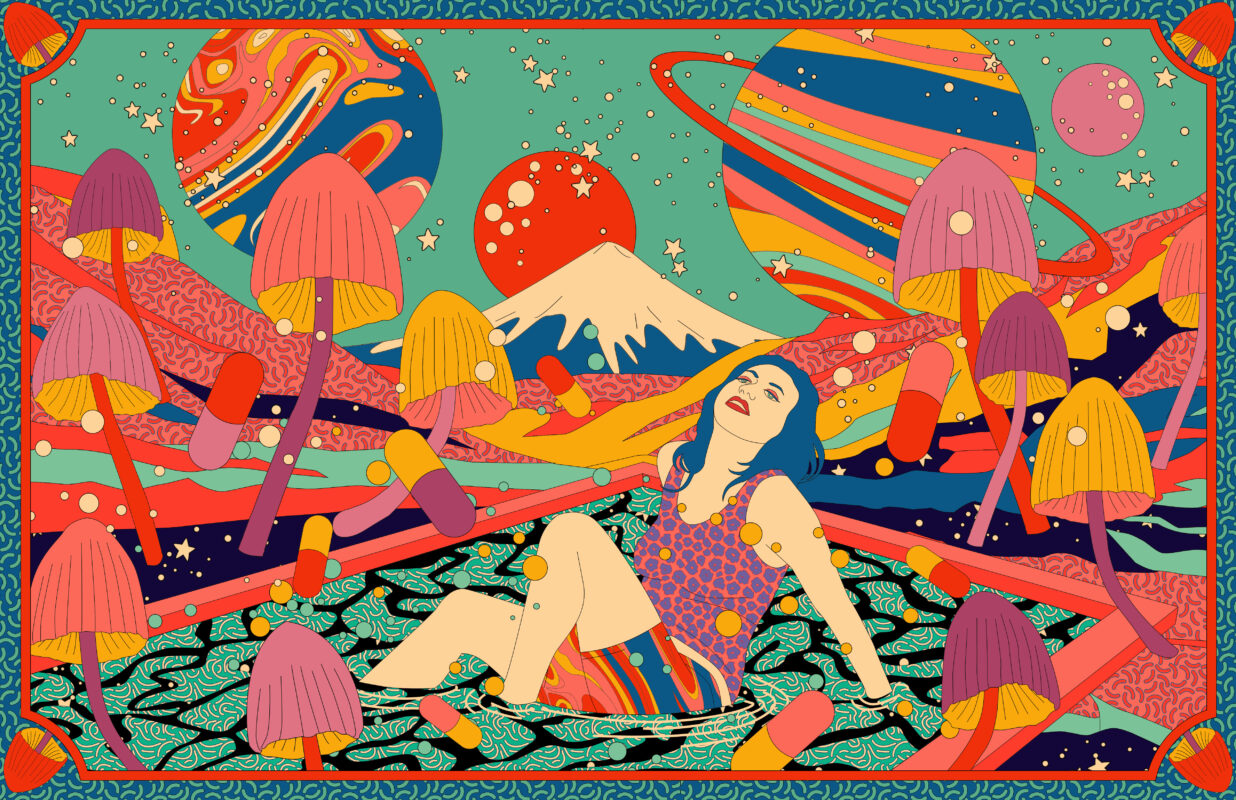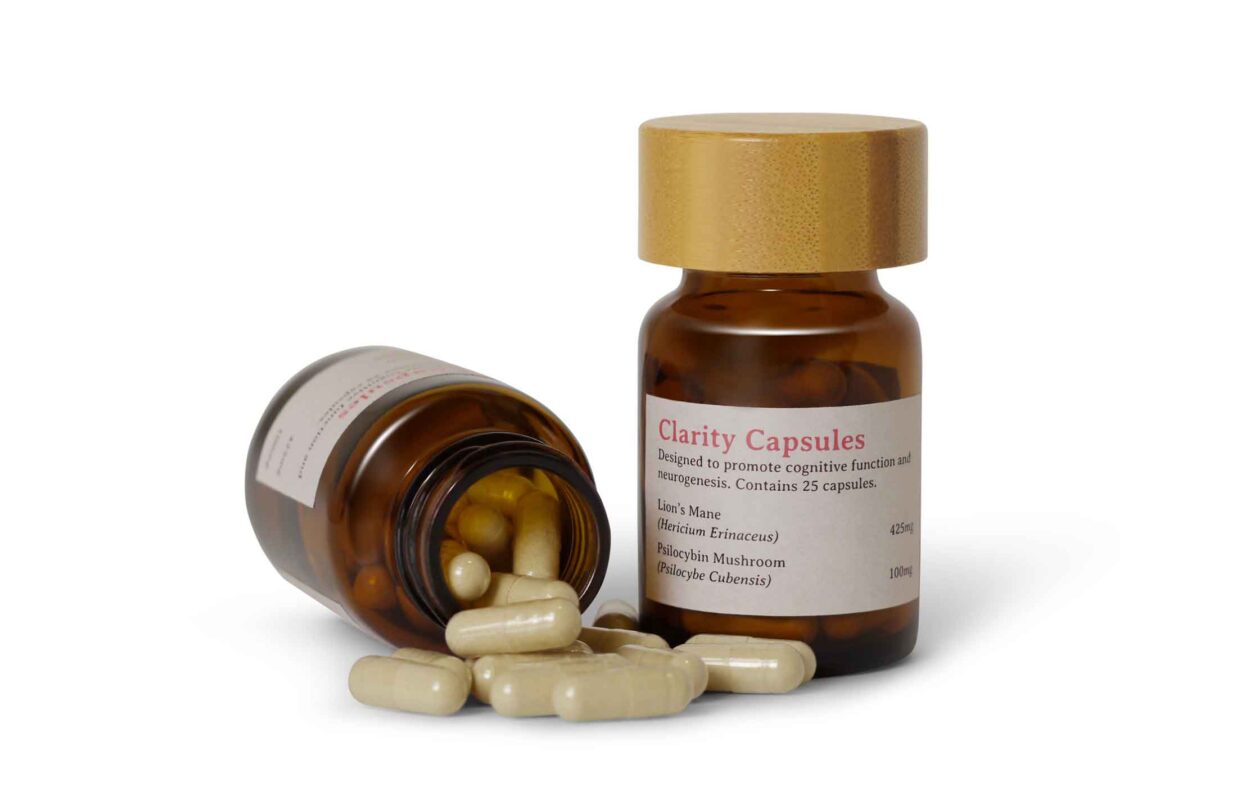How Psilocybin and Serotonin Reconnect You With… You
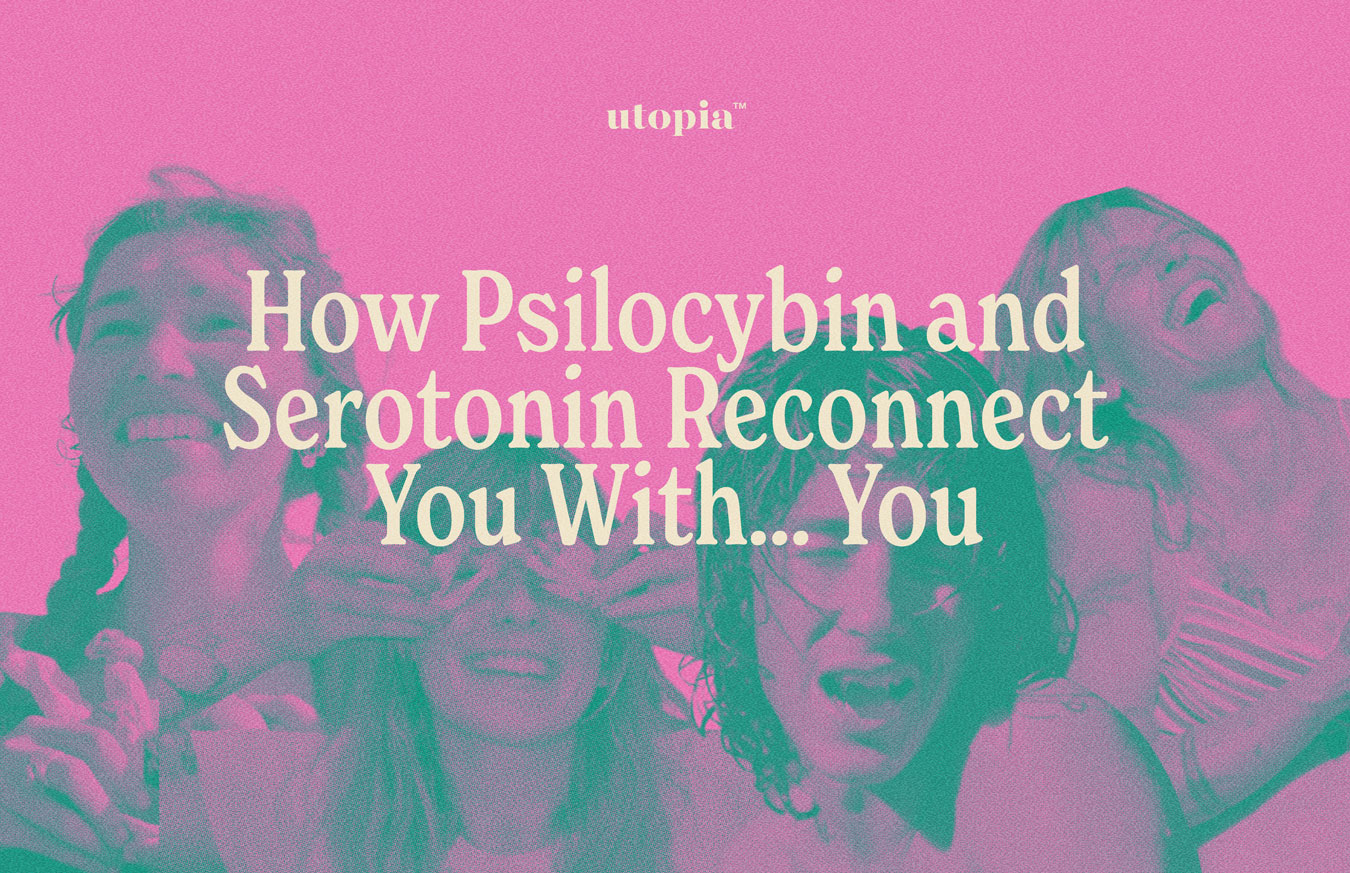
We all want to feel happy, connected, and at ease in our own skin. At the center of that feeling is a powerful little molecule called serotonin. Often nicknamed the “happiness chemical,” serotonin plays a central role in mood regulation, sleep, digestion, and emotional well-being.
But happiness isn’t always easy to reach. We live in a traumatized world that moves fast, demands more, and leaves little space for stillness. It’s no surprise that many people are turning to psilocybin, the naturally occurring compound in magic mushrooms, not as a cure-all, but as a powerful complement to emotional healing.
The active compound in magic mushrooms doesn’t just boost serotonin: it helps rewire the brain, quiet the noise, and reconnect us with who we were before the world got in the way. Before the anxiety. Before the burnout. And before we forgot what peace felt like.
This is where the connection between psilocybin and serotonin gets truly interesting. While conventional antidepressants like SSRIs aim to regulate serotonin levels slowly over time, psilocybin works through a radically different—and faster—mechanism. And it’s changing how we understand healing.

How Psilocybin Interacts with 5-HT2A Receptors
So, what makes the relationship between psilocybin and serotonin so fascinating? While psilocybin doesn’t directly increase serotonin levels, it takes a beautifully clever detour. After you ingest it, your body converts psilocybin into psilocin, a compound that closely resembles serotonin—similar enough, in fact, that your brain treats it like one of its own.
But here’s the interesting part: psilocin actually binds more strongly to the brain’s 5-HT2A receptors than serotonin itself. That stronger connection sets off a chain reaction in the brain, reshaping how different regions communicate—and paving the way for the deeply introspective, emotionally clarifying experiences so often reported with psilocybin.
“Psilocin—the compound your body converts psilocybin into—binds more strongly to the brain’s 5-HT2A receptors than serotonin itself.”
This more powerful binding ability comes down to a small but crucial twist in molecular structure. While serotonin and psilocin are nearly chemical twins, psilocin’s shape allows it to lock into serotonin receptors even more effectively—like a key that not only fits the lock, but turns with ease.
What does that mean for you? It means that psilocin is especially good at activating the parts of the brain involved in mood, perception, and emotional depth—helping to unlock the kind of inner insight and lightness that many users describe after a well-supported psilocybin journey.
And yes, the science backs it up: studies show that psilocin occupies up to 72% of 5-HT2A receptors at therapeutic doses, with its effects closely tied to this receptor activity. In plain terms, psilocin gives your serotonin system a gentle nudge, amplifying the brain’s natural capacity for joy, reflection, and connection.
Default Mode Network: The Brain’s Reset Button
One of the most remarkable things psilocybin does in the brain is hit the reset button—right where many of us need it most. That reset happens in a cluster of brain regions called the Default Mode Network (DMN)—the part of your mind that’s most active when you’re lost in thought, self-reflecting, daydreaming, or, unfortunately, overthinking.
In people struggling with depression, anxiety, OCD, or PTSD, the DMN tends to be overactive—looping in repetitive thoughts, self-criticism, and emotional rumination. It’s like the brain gets stuck in its own echo chamber.
But here’s where it gets exciting: in a 2024 study using advanced brain mapping, researchers found that psilocybin disrupts the DMN more powerfully than any other compound they tested—more than three times stronger than prescription stimulants like methylphenidate.
Psilocybin doesn’t just quiet the noise. It desynchronizes overactive patterns, softens rigid mental loops, and loosens the grip between the DMN and the hippocampus, a part of the brain closely tied to memory and emotional processing.
What does that feel like? For many, it’s a pause from the inner chatter. A breath of stillness. A chance to step outside the usual mental spin and finally experience a kind of clarity that lingers—not for minutes, but for weeks. And that lingering clarity is one of the biggest reasons why psilocybin is being explored as a breakthrough tool for emotional healing.
How Psilocybin Rewires the Brain Through Neuroplasticity
Psilocybin doesn’t just change how the brain feels—it changes how the brain functions. One of its most exciting and promising effects is its ability to spark neuroplasticity, the brain’s natural capacity to grow, adapt, and form new connections.
Within just a day of taking psilocybin, researchers have observed up to a 9% increase in synaptic vesicle protein 2A (SV2A)—a key biological marker that tells us the brain is actively building new circuits. Think of it like the brain’s internal wiring system getting an upgrade, reinforcing the pathways that support mood, learning, flexibility, and emotional resilience.
And it doesn’t stop there.
Psilocybin also activates growth pathways like BDNF (brain-derived neurotrophic factor) and mTOR, which act like natural fertilizers for the brain. These pathways help neurons sprout, connect, and communicate more efficiently—especially in areas tied to memory, emotion, and mental clarity.
In animal studies, researchers have found that psilocybin can increase the size and number of dendritic spines—tiny branches that allow brain cells to “talk” to each other—by about 10%. These changes are particularly strong in the hippocampus, a region essential for processing memory and emotional experience.
Even more fascinating, new research suggests that psychedelics like psilocybin may support plasticity through a second mechanism, by interacting directly with the BDNF receptor (TrkB)—offering another way to restore mental flexibility beyond its effects on serotonin alone.
In plain terms? Psilocybin helps your brain reconnect with itself, and with you.

What the Clinical Research Is Telling Us
The clinical data on psilocybin is more than promising, it’s actually reshaping how we think about mental health treatment.
In one pivotal phase 2 trial, a single 25mg dose of synthetic psilocybin—equivalent to about 3.5 grams of dried mushrooms—produced rapid antidepressant effects that lasted over six weeks in adults with major depression. Unlike traditional antidepressants, which can take weeks to show any benefit, participants began feeling relief in just a matter of days.
To be clear: this was lab-made psilocybin,—not raw mushrooms—used to ensure consistency and safety in a clinical setting. But the results were significant enough to turn heads across the medical world.
Even in treatment-resistant cases—individuals who had tried and failed multiple other therapies—the effects were substantial. Many reported noticeable improvement within eight days, with benefits sustained across six to twelve weeks after just one guided session.
These findings were strong enough for the FDA to grant “breakthrough therapy” designation to psilocybin not once, but twice: first in 2018 for treatment-resistant depression, and again in 2019 for major depressive disorder. That designation signals something simple but powerful: this compound has the potential to be a game-changer.
How Psilocybin and Serotonin Create Transformative Effects
When you combine 5-HT2A receptor activation, Default Mode Network reset, and enhanced neuroplasticity, something powerful starts to happen, not just in the brain, but in how people feel, think, and relate to themselves.
Together, these effects create what many describe as a kind of mental and emotional reset:
- Emotional clarity. A noticeable drop in reactivity, with more space to breathe, feel, and reflect.
- Cognitive flexibility. Old patterns dissipate. Healthier habits begin to feel not just possible, but natural.
- Rapid relief. Unlike conventional treatments that take weeks to build, psilocybin’s effects often emerge within days—and can last for months.
The science is compelling, but the lived experience is what stays with people. Many report a renewed sense of clarity, connection, and even peace after just a single, intentional psilocybin journey—like remembering who they are underneath it all.
While full-dose experiences can bring about profound, life-shifting insights, not everyone is seeking a trip to the center of their mind. For many, psilocybin’s most valuable gifts show up in smaller, more subtle ways such as improved mood, better focus, and a quiet return to emotional balance.
That’s where microdosing comes in.
Microdosing Psilocybin: What the Science and Studies Show
Microdosing involves taking very small, sub-perceptual amounts of psilocybin—doses that won’t send you into a psychedelic state, but may offer subtle shifts in mood, clarity, and creativity over time.
Although clinical studies are still catching up to the growing popularity of microdosing, early research and thousands of personal stories point to promising effects: improved emotional resilience, sharper mental focus, and an overall sense of feeling more grounded.
At Utopia, we offer a wide range of precisely formulated microdose capsules, gummies and teas, including favorites like Lemon Tek. These blends are crafted to support your serotonin system gently and reliably whether you’re heading into a long day, a creative project, or just trying to feel more like yourself again.
Complement Psilocybin with Natural Serotonin Support
While psilocybin can act as a powerful catalyst for change, it’s the daily rhythms of life such as sunlight, movement, rest, and intention, that help those effects take root. These simple practices don’t just enhance psilocybin’s potential, they help create an inner environment where serotonin can truly thrive.
Here are a few science-backed ways to support your serotonin system naturally:
- Sunlight. Just 10–30 minutes of morning light exposure can help stimulate serotonin production via the eyes’ light-sensitive cells, improving mood and aligning your circadian rhythm.
- Movement. Regular physical activity boosts BDNF (brain-derived neurotrophic factor), improves tryptophan uptake, and encourages the growth of new neurons—especially in areas that help regulate mood and emotional balance.
- Sleep. Serotonin plays a key role in producing melatonin, the hormone that governs your sleep-wake cycle. Prioritizing quality sleep helps your brain recover and stay emotionally resilient.
- Tryptophan-rich foods. Foods like oats, seeds, salmon, and eggs contain the amino acid tryptophan—one of the raw materials your brain needs to produce serotonin. Pairing these with complex carbs can improve absorption.
- Mindset. Practices like gratitude, mindfulness, and even simple positive reframing can help reshape your brain’s wiring over time. When paired with the neuroplasticity unlocked by psilocybin, these habits can lead to lasting change.
Psilocybin may open the door—but your daily habits decide how far you walk through it.
Important Safety Considerations regarding Psilocybin and Serotonin
Psilocybin may be natural, but that doesn’t mean it’s right for everyone. While many people tolerate it well, it’s important to approach it with care and self-awareness.
Some of the more common short-term side effects include nausea, dizziness, headache, and occasionally, anxiety—especially at higher doses or in unfamiliar settings.
It’s best to avoid psilocybin if you’re currently taking SSRIs or other serotonin-boosting medications, as combining multiple serotonergic compounds can increase the risk of a rare but serious condition known as serotonin syndrome. Likewise, anyone with a personal or family history of psychosis or certain heart conditions should avoid psilocybin unless under medical supervision.
As with any supplement or mental health tool, it’s always wise to consult a healthcare provider—especially if you’re navigating a complex medication regimen or underlying health conditions.
Final Thoughts
Serotonin isn’t just about happiness, it’s also about wholeness. And psilocybin offers more than a temporary lift. It opens a doorway back to yourself.
By rewiring the brain’s internal circuitry, quieting the noise of an overactive mind, and activating the body’s innate healing systems, psilocybin helps you reconnect with the version of yourself that existed before the world got heavy.
Whether you’re microdosing to bring more light into your mornings or exploring deeper journeys with care and intention, Utopia’s psilocybin offerings are here to support that return—gently, precisely, and always with integrity.
Because sometimes, the most powerful transformation isn’t becoming someone new.
It’s remembering who you’ve been all along.
Serotonin isn’t just about happiness—it’s about wholeness. And psilocybin offers something deeper than a temporary lift: it opens a doorway back to yourself.
By rewiring neural pathways, quieting the noise of an overactive mind, and supporting the brain’s natural systems of healing and growth, psilocybin helps you remember who you were before the world hardened you. Before the spiral of stress, disconnection, and survival mode.
Whether you’re microdosing to bring a little light into your mornings or exploring deeper healing through therapeutic journeys, Utopia’s curated psilocybin products are here to support that return. Gently, precisely, and with intention.
Because sometimes, feeling like yourself again is the most profound transformation of all.

